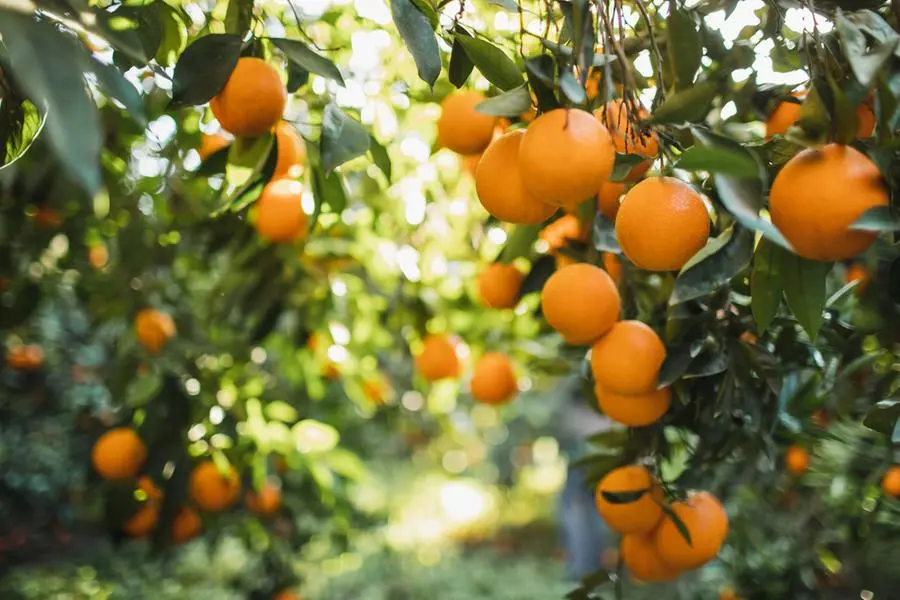PHOTO
All of the orange fruit is useful. As it turns out, the peel that is used in rural African households as a natural mosquito repellent can also aid in strengthening heart health.
Researchers from the University of Florida revealed that certain chemicals from orange peels, which are typically discarded as waste, can inhibit the production of substances that can harm the cardiovascular system.
These findings, offering a promising use for this common agricultural byproduct, highlight the potential of repurposing orange peels into health-promoting ingredients and developing functional foods to improve heart health. It was published in the Journal of Agricultural and Food Chemistry.
Related PostsHealth problems related to stressPresidential Race: Biden declares unwavering commitment amid health speculationsHealth, social issues formed thematic thrust of BetKing employee-led campaign
Yu Wang, an associate professor of food science and human nutrition, and her colleagues looked into whether orange peel extracts, which are high in healthy phytochemicals, could lower the synthesis of dangerous chemicals that can damage the cardiovascular system, such as trimethylamine N-oxide (TMAO) and trimethylamine (TMA).
However, the Food and Drug Administration considers natural orange peel extracts safe for human consumption. Orange peels, frequently thrown away as trash in the citrus industry, might therefore be used to make essential substances that promote health, like diet supplements or culinary seasonings.
The scientists tested two types of extracts: a polar fraction and a non-polar fraction. The polar fraction is everything in the vinegar or water portion, and the non-polar fraction is everything in the oil that is not in contact with water.
Results from the study showed that the orange peel non-polar fraction extract effectively inhibited the production of harmful chemicals. In the orange peel polar fraction extract, researchers also discovered a substance known as feruloylputrescine, which likewise strongly inhibits the enzyme in charge of producing TMA.
Citrus fruits have a long history as traditional remedies, with their peels or whole fruits used to treat various ailments like indigestion, cough, skin inflammation, muscle pain, ringworm infections, and to lower blood pressure.
What is more, orange is the main citrus fruit consumed worldwide, and after its use, approximately more than half of the fruit remains as by-products, which comprise important bioactive compounds useful for the development of promising nutraceuticals for the treatment of non-communicable diseases.
When feasible, thoroughly cleaned orange peels with their pulp are used in dishes including soups, cereals, sauces, smoothies, teas, and desserts. They can also be used as aromatherapy in beauty products like bath bombs and massage oils.
Oranges are one of the best fruits to reduce the occurrence of the main risk factors for heart disease. Multiple studies have shown that drinking orange juice alleviates indicators of heart disease, including inflammatory stress, hypertension, and obesity.
Heart disease is the leading cause of death for men, women, and people across most racial and ethnic groups. According to the Federal Ministry of Health’s Non-communicable Disease Division, heart disease is responsible for 10 percent of all deaths in Nigeria.
In 2012, the World Health Organisation reported that over half a million Nigerians died from non-communicable diseases (NCDs), and one out of every five Nigerian adults over the age of 30 will likely die prematurely from NCDs, including cardiovascular diseases.
Recent research has shown that some gut bacteria help develop cardiovascular disease. When they feed on certain nutrients during digestion, gut bacteria produce trimethylamine N-oxide (TMAO). Levels of TMAO can help predict future cardiovascular disease, according to researchers at the Cleveland Clinic.
Past studies have reported that oranges and other citrus fruits, because they contain plenty of vitamins and substances, such as antioxidants are helpful in preventing the harmful effects of obesity in mice fed a Western-style, high-fat diet.
The team at Universidade Estadual Paulista (UNESP) in Brazil conducted an experiment with 50 mice, treating them with flavanones found in oranges, limes, and lemons. The flavonones they focused on were hesperidin, eriocitrin, and eriodictyol.
For one month, researchers gave groups either a standard diet, a high-fat diet, a high-fat diet plus hesperidin, a high-fat diet plus eriocitrin, or a high-fat diet plus eriodictyol.
Compared to mice on a standard diet, the high-fat diet lacking the flavanones elevated the levels of thiobarbituric acid reactive substances (TBARS), a measure of cell damage, by 80% in the blood and 57 percent in the liver.
However, as compared to mice given a high-fat diet but not flavanones, hesperidin, eriocitrin, and eriodictyol reduced the amounts of TBARS in the liver by fifty percent, fifty-seven percent, and sixty-four percent, respectively.
In these mice, eriocitrin and eriodictyol likewise decreased blood levels of TBARS by 48 percent and 47 percent, respectively.
In addition, mice treated with hesperidin and eriodictyol had reduced fat accumulation and damage to the liver.
Studies have shown that the peels of citrus fruits, such as sweet oranges, can decrease cholesterol and blood sugar levels.
In the National Journal of Physiology, Pharmacy, and Pharmacology, the sweet orange peel extract of these doses reduced blood glucose levels in different doses in animal models, and the most interesting feature was the activity of the extracts in lowering blood cholesterol levels.
However, some researchers also caution that orange peel extract and orange juice can have a major interaction with commonly prescribed cardiovascular drugs such as statins, as well as possibly interact with antibiotics, anti-parasitics, and beta-blockers.
Furthermore, peels containing a high percentage of pesticide residue may be difficult to digest, leading to stomach discomfort, cramps, and bloating.
Copyright © 2022 Nigerian Tribune Provided by SyndiGate Media Inc. (Syndigate.info).




















